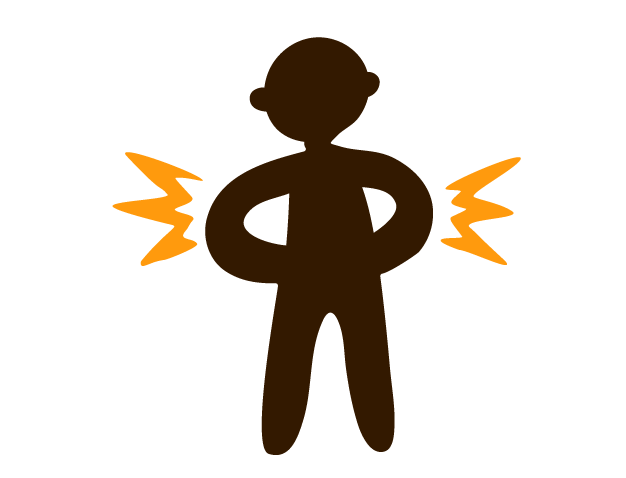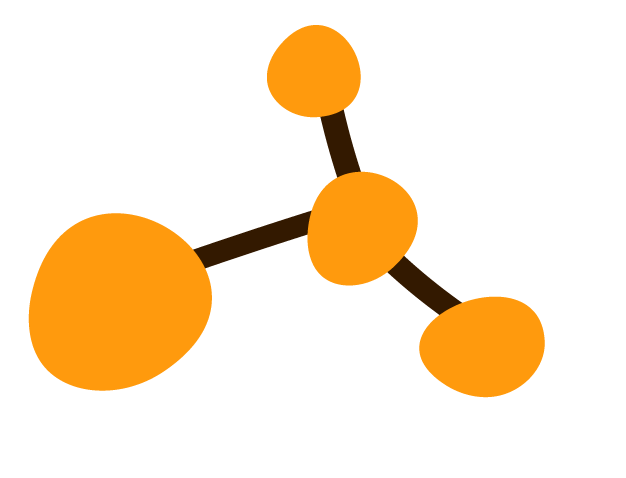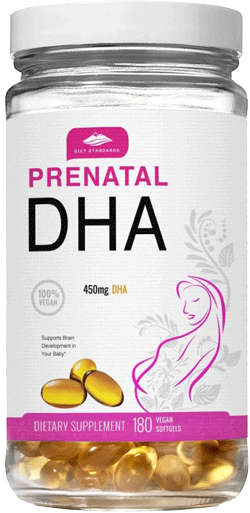If you’re trying to conceive or are already pregnant, you may have been informed by your doctor on the necessary supplements or medications that you need to take to ensure health and safety for you and the baby.
Let’s talk about the best DHA supplement for pregnancy…
DHA – What is it, what are its benefits and where can you purchase them?
Continue reading to learn more!

Prenatal DHA
DHA stands for docosahexaenoic acid, which is an omega-3 fatty acid that is essential for brain development. Around 97% of the omega-3 fatty acids found in the brain are made up of DHA. DHA also makes up around 25% of the brain’s total fat content. As human beings, we naturally produce DHA in small quantities, which is insufficient for our daily requirements. Therefore, it is important to take in DHA through dietary sources, such as fish, meat or omega-3 rich eggs. DHA is also available as supplements, such as fish oil.
Prenatal refers to during or relating to pregnancy. When applied to supplements, this actually refers to a particular composition of the supplement, meaning that there is a difference between prenatal supplements, or vitamins, and regular ones. For instance, a prenatal vitamin may contain less vitamin A than the standard ones as high doses can be toxic to a developing fetus, but zinc levels and vitamin C levels are higher.
Therefore, a prenatal DHA is a dietary supplement specifically for pregnant women, and those trying to conceive, that contains DHA as its main component. But, despite this, intake of prenatal DHA or other prenatal vitamins is still possible for women who are not pregnant.
Is Prenatal DHA the same as a Prenatal Multivitamin?
The simple answer is no.
Prenatal DHA is a form of omega-3 polyunsaturated fatty acid while a prenatal multivitamin is a combination of a range of different vitamins that are typically found in foods and other natural sources. Minerals can also be contained in prenatal multivitamins. A prenatal multivitamin may also contain DHA as one of its components.
Which brand should I take?
We recommend Diet Standards Prenatal DHA, which is algae-derived, vegan, manufactured in the USA and third-party lab tested, and medically reviewed making it guaranteed to be safe and beneficial for you and your baby.

What sets us apart from other brands is that by using algae, the mercury level in our product is 0 ppm, while the FDA limit is 1 ppm. Furthermore, we guarantee that Diet Standards Prenatal DHA contains no allergens, fish, shellfish, milk, eggs, peanuts, tree nuts, wheat or soy.
100% vegan and mercury free!

DHA Health Benefits
The health benefits of DHA range from improved heart health, better vision, and reduced inflammatory response to enhanced nervous system development health and cognitive development. That’s why we recommend a vegan dha supplement pregnancy. What are the benefits?
Here are a few examples:

DHA for Brain Health and Eye Health
- Supplementing DHA during pregnancy is highly important as it ensures proper brain development in the baby. Several studies have been conducted to assess the impact of DHA intake during pregnancy; what was found was that there are positive correlations between neurological development in infants and DHA supplementation.
- For instance, in the journal Critical Reviews in Food Science and Nutrition, which was published in 2019, found that higher DHA levels resulted in better childhood neurodevelopmental health, while lower DHA levels linked to higher rates of autism spectrum disorders and attention-deficit/hyperactivity disorders.
- Asides from reducing the chances of autism and ADHD, DHA also helps establish better problem-solving capabilities as well as better early visual acuity. This was found in separate studies by the American Journal of Clinical Nutrition on children of mothers who consumed DHA supplements or food during pregnancy versus mothers who did not.
- As healthy brain development correlates with proper development of the nervous system, infants in the first six months of life require adequate amounts of DHA. Breastfeeding mothers may need to consume 200 mg to 300 mg of DHA a day, while infant formulas usually contain DHA already.
- In a 2014 study published by the journal Nutrients, intake of high levels of DHA during early childhood can lead to enhanced speed of performing mental tasks, memory retention and overall cognitive performance.

DHA for Mental Health
- DHA and EPA are both fats which support serotonin, a nerve messenger which helps balance one’s mood.
- Based on a 2010 research review from Biological Psychiatry, people with depression were more likely to have low levels of DHA and EPA, concluding that DHA and EPA may help reduce depressive symptoms and act as a method of treatment towards depression. These fats also have anti-inflammatory effects on nerve cells, which may reduce depression risk as well

Why DNA is Good for Overall Health
- DHA provides a wide range of support to the body.
- DHA is known to promote proper blood circulation and may help lower blood pressure, reducing the risk of heart attacks or stroke.
- DHA assists in eye health – in a study, it was found that consuming 500 mg of DHA, as well as 1,000 mg of EPA, daily for three months decreased eye pressure by 8%, reducing the risk of glaucoma, which is an eye disease that gradually erodes vision. Furthermore, DHA can improve dry eyes and act as a form of treatment for retinopathy.
- DHA helps reduce inflammation and balance out excessive inflammatory omega-6 fats, which are found in diets rich in soybean and corn oil. Due to its anti-inflammatory effects, this reduces the risk of chronic diseases that are common with age, such as heart disease; improve autoimmune conditions, such as rheumatoid arthritis, which causes joint pain; and help reduce muscle soreness and limitations in range of motion due to strenuous exercise.

When to Start?
It’s best to start taking prenatal DHA before conceiving, but it’s never too late to start getting benefits.
Getting high quality DHA before conceiving gives your body time to use the omega-3 fatty acid to improve your own health and build up stores. This means that your baby will start getting the DHA he even before you know you’re expecting!
On the other hand, however, it’s never too late to start getting the benefits of prenatal DHA for you and your baby. Even if your due date is right around the corner, adding in DHA will get omega-3 fatty acids to your baby that he otherwise would not get. In addition, babies also need DHA after birth.
If you plan to breastfeed, taking a prenatal DHA supplement in conjunction with a prenatal vitamins for as long as you nurse will give your baby everything needed to grow up healthy and strong.
Do you have to be Pregnant or Breastfeeding to take DHA? Can Men take them too?
You do not have to be pregnant or breastfeeding to take DHA. Yes, men can take them too.
Consumption of DHA is allowed for anyone, as long as they are not allergic to omega-3 polyunsaturated fatty acid or soybeans, as they provide benefits during all stages of life. There are clear benefits to babies and children, as covered above, but also to teenagers, adults and seniors. For instance, numerous studies that have been conducted found that seniors with higher levels of omega-3’s, specifically DHA, have significantly less risk of developing diseases that affect the memory, such as dementia or Alzheimer’s.
However, this may differ for Prenatal DHA, as it is not approved for use by anyone younger than 18 years old.
Before purchasing DHA supplements for yourself during or before pregnancy, be sure to consult with your doctor. Also inform your doctor if you have ever had or currently have:
- an allergy to fish or shellfish;
- diabetes;
- liver disease;
- a heart rhythm disorder;
- a pancreas disorder; or
- an underactive thyroid.

Popular Articles on ComproGear
Rose Toy Vibrators Don’t Make You Orgasm Like This
Can you take too much Prenatal DHA?
Firstly, the recommended minimum dose is mixed.
The American Pregnancy Association recommends pregnant women to take a daily prenatal DHA supplement that provides a minimum of 300 mg of DHA. The Food and Agriculture Organization of the United Nations (FAO) had released a paper in 2009 which contained recommendations of a minimum of 200-300 mg a day for pregnancy and lactation. On the other hand, some studies found that supplementation of less than 600 mg a day were not beneficial in preventing early preterm birth. To support this, at the 2018 International Congress on Vegetarian Nutrition (ICVN), evidence from recent studies were presented, showing that supplementation of 600 mg-1000 mg a day has correlated with lowered risk of pre-term delivery and higher birthweight, as well as a positive effect on brain development in the infant.
Therefore, it is highly crucial that you consult with your doctor beforehand to understand the right dosage for you, as consuming too much could lead to lesser benefit and potential harm to you and/or the baby.
If you think you or someone else may have overdosed on prenatal DHA, call your doctor or the Poison Control Center at (800) 222-1222 (for residents in the US only.)

What are the Side Effects?
There are side effects that may require immediate medical attention while others do not, meaning that they tend to go away on their own during treatment once the body adjusts to it.
Although if the side effects continue or become bothersome, then check with a healthcare professional.
Side effects of DHA requiring immediate medical attention
- Bleeding gums;
- Consistent coughing and/or coughing up blood;
- Difficulty breathing and/or swallowing;
- Tightness in the chest;
- Dizziness and/or consistent headache;
- Irregular heartbeat;
- Hives, itching or skin rash in various parts or throughout the body;
- Sudden nosebleeds;
- Puffiness or swelling, particularly in the face area;
- Increased menstrual flow than usual or vaginal bleeding;
- Or red or dark brown urine.
Side effects of DHA not requiring immediate medical attention
- Diarrhea;
- Loss of appetite;
- Nausea or vomiting;
- Bloated or passing of gas;
- Indigestion.

What is the Best Omega-3 Supplement During Pregnancy
- The best prenatal omega-3 supplements will give you all of the DHA you need in an easily absorbable form. It will be low in pollutants and should come from a trusted brand.
DHA Absorbability
- DHA is available from marine sources such as algae, shellfish, fish, and even seals. Your body can, however, synthesize DHA from alpha-linoleic acid found in some plants and seeds.
- This conversion, however, is not at all efficient. In fact, you would have to eat incredibly large amounts of chia seeds or flax seeds to to even meet the minimum DHA requirements for an average adult. It would be nearly impossible to get the DHA required for pregnancy or breastfeeding this way.
DHA Pollutants
- Perhaps you’ve heard, however, that you should limit your intake of some seafood during pregnancy because of high mercury and other heavy metal levels.
- It is indeed true that fish tend to have even more metal in them than most other foods that we eat. The levels of metals and other toxins only increases further up the food chain.
- The best way to ensure you can easily absorb your DHA but not a ton of heavy metals is to get a prenatal DHA supplement that is algae-derived. This is the bottom of the food chain, the same place where fish get their DHA from originally. But, unlike other plant sources, algae omega-3 fatty acids easily convert to DHA in the human body.
Which brand should I take?
We recommend Diet Standards Prenatal DHA, which is algae-derived, vegan, manufactured in the USA and third-party lab tested, and medically reviewed making it guaranteed to be safe and beneficial for you and your baby.

What sets us apart from other brands is that by using algae, the mercury level in our product is 0 ppm, while the FDA limit is 1 ppm. Furthermore, we guarantee that our product contains no allergens, fish, shellfish, milk, eggs, peanuts, tree nuts, wheat or soy.
100% vegan and mercury free!


Algae-derived vs. Fish-derived DHA
- In the context of environmental sustainability, obtaining omega-3, such as DHA, from algae-derived sources, is the best option. Our body absorbs in the same way, whether it is algae-derived or fish-derived.
- Furthermore, it is somewhat safer to consume DHA from algae-based sources for its purity.

DHA is absolutely essential for brain development in infants and children, and can help maintain proper brain health in later years too.
It is beneficial in many ways; not just for the brain, but for the whole body as it reduces the risk of various diseases that could affect different parts of the body, such as the heart.
As a result, prenatal DHA is usually recommended for those trying to conceive or are already pregnant, to ensure that the baby grows optimally.

Diet Standards Prenatal DHA is, therefore, the perfect choice as it not only provides the necessary requirement of DHA, but is algae-derived, making it obtained in a clean, sustainable environment and 100% vegan.
References
- “DHA: Benefits, Side Effects, Dosage, and Interactions,” 2020, Very Well Mind, https://www.verywellmind.com/the-health-benefits-of-dha-89183#:~:text=Docosahexaenoic%20acid%20%28DHA%29%20is%20an%20omega-3%20fatty%20acid,heart%20health%2C%20better%20vision%2C%20and%20reduced%20inflammatory%20response.
- “12 Health Benefits of DHA (Docosahexaenoic Acid),” 2018, Healthline, https://www.healthline.com/nutrition/dha-benefits
- “Prenatal DHA,” 2020, Drugs.com, https://www.drugs.com/mtm/prenatal-dha.html
- “Prenatal DHA Side Effects,” 2020, Drugs.com, https://www.drugs.com/sfx/prenatal-dha-side-effects.html
- “Prenatal multivitamins,” 2019, Drugs.com, https://www.drugs.com/mtm/prenatal-multivitamins.html
- “Prenatal Vitamins vs. Regular Vitamins: What’s the Difference?,” 2020, Scary Symptoms, https://scarysymptoms.com/2014/08/prenatal-vitamins-vs-regular-vitamins/
- “DHA Supplements: Why They’re Critical for Your Brain”, Be Brain Fit, https://bebrainfit.com/dha-supplements-brain/
- “DHA Supplementation During Pregnancy: How Much is Enough?,” 2018, Whitney E. RD, https://www.whitneyerd.com/2018/03/dha-supplementation-during-pregnancy-how-much-is-enough.html
- “DHA: What It Is and Why You Need It,” First Response, https://www.firstresponse.com/en/Articles-Listings/What-is-DHA
- “Omega-3 from Algae vs. Fish Oil – What’s Better?,” Mr Plant Based, https://mrplantbased.com/omega-3-from-algae-vs-fish-oil/
This page last updated May 31, 2022